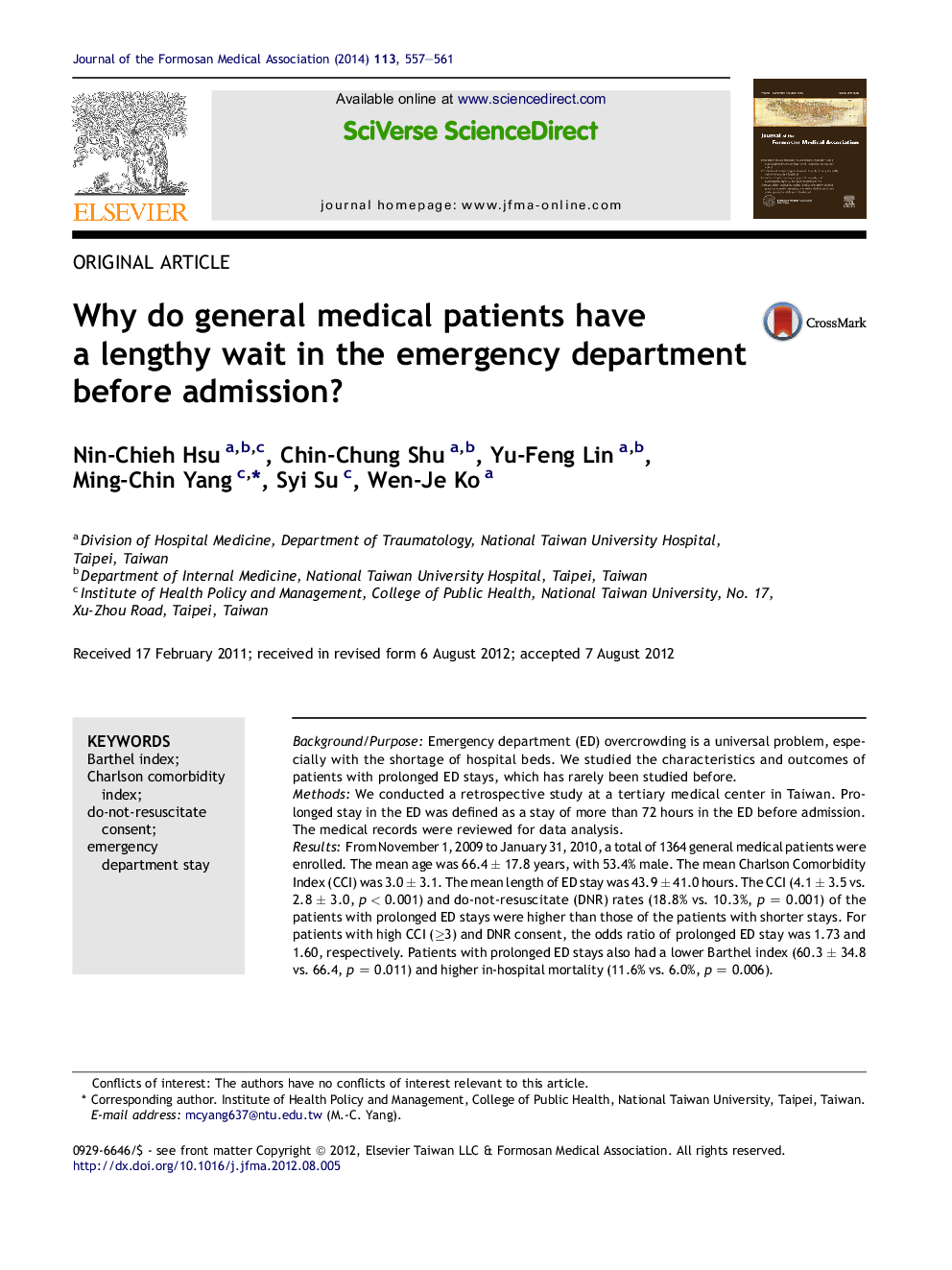| Article ID | Journal | Published Year | Pages | File Type |
|---|---|---|---|---|
| 3478805 | Journal of the Formosan Medical Association | 2014 | 5 Pages |
Background/PurposeEmergency department (ED) overcrowding is a universal problem, especially with the shortage of hospital beds. We studied the characteristics and outcomes of patients with prolonged ED stays, which has rarely been studied before.MethodsWe conducted a retrospective study at a tertiary medical center in Taiwan. Prolonged stay in the ED was defined as a stay of more than 72 hours in the ED before admission. The medical records were reviewed for data analysis.ResultsFrom November 1, 2009 to January 31, 2010, a total of 1364 general medical patients were enrolled. The mean age was 66.4 ± 17.8 years, with 53.4% male. The mean Charlson Comorbidity Index (CCI) was 3.0 ± 3.1. The mean length of ED stay was 43.9 ± 41.0 hours. The CCI (4.1 ± 3.5 vs. 2.8 ± 3.0, p < 0.001) and do-not-resuscitate (DNR) rates (18.8% vs. 10.3%, p = 0.001) of the patients with prolonged ED stays were higher than those of the patients with shorter stays. For patients with high CCI (≥3) and DNR consent, the odds ratio of prolonged ED stay was 1.73 and 1.60, respectively. Patients with prolonged ED stays also had a lower Barthel index (60.3 ± 34.8 vs. 66.4, p = 0.011) and higher in-hospital mortality (11.6% vs. 6.0%, p = 0.006).ConclusionComplex comorbidities and terminal conditions with DNR consent were associated with the prolonged ED stay for general medical patients. The hospital manager should pay attention to general medical patients with multiple comorbidities as well as those who require palliative care.
